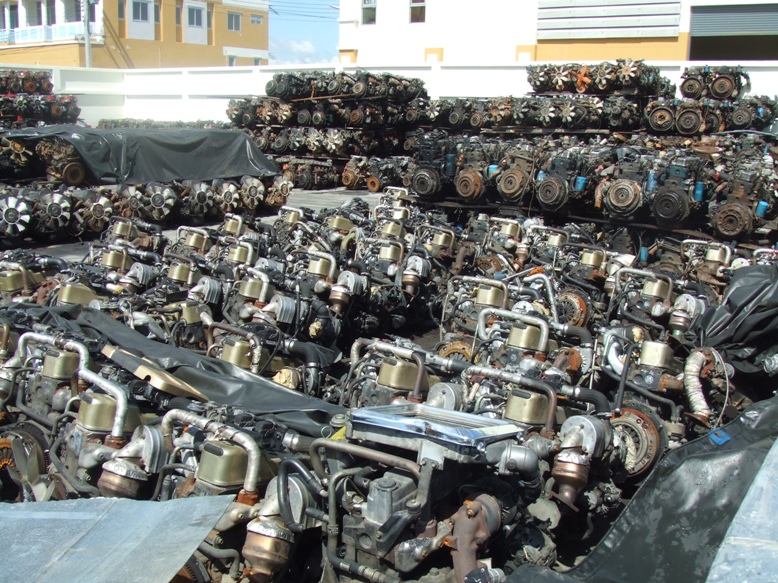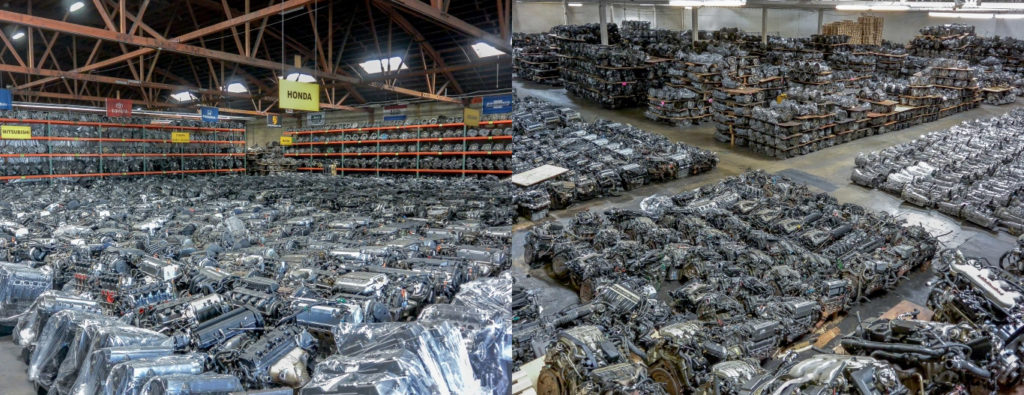

We have already mentioned several used car parts and especially used engines markets all over the world. This article will tell you about used car parts market features, specifications, tips and difficulties in Japan.
- How do Japanese dealers sell used parts and especially used engines?
- How do these used parts appear on the market?
- What car brands used parts you can find there?
- What are advantages and disadvantages of Japanese used car parts market?
- How clients get cheated and how to avoid and prevent the loss of your money when buying some used parts?
Japan cars are famous all over the world. There are millions, and possibly, billions of drivers who are fans of Japanese cars, who trust Japanese car manufacturers and happy about owning these vehicles. As you know, Japan is the motherland for such worldwide famous brands as Toyota, Suzuki, Isuzu, Mitsubishi, Honda, Nissan, Mazda, etc. Japanese cars are famous for their reliability. Moreover, Japanese vehicles are synonyms of reliability and low-cost maintenance, which followed to a huge demand on them all over the world. It also means that it is not very complicated to buy any used parts for Japanese cars including used engines. You can easily find parts for new models in your local shop, however it will be a real challenge to find any parts for old models or to find used parts. This is where we can help you. We will explain how this business of selling used parts and engines works in Japan, its advantages and disadvantages and the difficulties you can face if you buy any used parts there.
How do the goods appear on second hand markets?
The background of Japanese used car parts varies: some parts appear there after car incidents and are initially sold to the retailers for example in a nose cuts and off-cuts. Other parts appear there before or instead of recycling: scrap yards disassemble extract parts from the cars which can be sold: engines, transmissions, doors, mirrors, bumpers, grills and other used parts.
There are hundreds of exporters of car parts from Japan. Moreover, the majority of reliable and comparatively decent used parts are sold in Japan market. Export services can help you find any required part for your car from Japan. However, some of them trick the customers while selling used parts for Japanese cars.
How do exporters in Japan work:
All the exporters have huge warehouses stocked with car parts of various brands. Besides Japanese car brands, some of them sell right-hand drive European cars like BMW, Mercedes-Benz, Opel, Volkswagen, Audi, etc. When they send them to other countries they load marine containers with engines, transmissions, doors, bumpers, grills, exhaust manifolds, spark plugs, used tires, body parts and other used parts. If you found an honest retailer, all the parts are checked before sending. Then they reach the destination country by sea and sell car parts in local shops and markets. The prices on used parts which are sold are in good condition are reasonable.
However, if you want to get exactly what you want, you should know all the specifications of a required part. For example, if you want to buy a used engine you should know: the brand of vehicle (e.g. Toyota), the car model (e.g. Camry), the year of model (e.g. 2012), the engine capacity (e.g. 2.5), the kind of transmission of your vehicle (e.g. automatic), the engine displacement and the fuel system (e.g. diesel). These points will let the exporter get a clear picture of a required good and makes it easier to provide a shipment of the best suitable part you want. Otherwise you have a risk to get an unappropriated car part which may be difficult to return as well as your money. This is why you should be careful and confident in a question what used engine (or other part) is required to you.
How all the parts are kept: used car engines, transmissions, doors, bumpers, body parts and other ones are placed in an enormous storage building. All the parts are sorted by types e.g. each row is full of engines made by various brands: Toyota, Mitsubishi, Suzuki, etc. There are those clients who want to buy any parts get in, walk around there and look for required engine or transmission or anything else they want. But the way how engines are kept there can be shocking: laying one on another making a huge mountain of metal: looks like a diesel punk art picture, but not like used engines store. The engines are cut out of cars by gas torch and then moved to a big row by a lift. All the ‘rest’ parts which cannot be sold are destroyed just right there, inside a storage building, and then sent to a recycling companies. The condition of recycled parts (especially body ones) is on a high level: such cars can serve for 10 and more years. After some parts are extracted by gas torch, the wires from all parts are moved out. The fuel tank is made empty by punching a hole in it. Seeing it in real life can be shocking and can make you change your opinion on buying this engine or another part. Some retailers in Japan keep their goods as at a real scrap yard which effects on the quality of used engines which are sold there.
However, there are reliable and honest used car parts dealers. According to Japanese laws about ecology and public safety, all the drivers from Japan must preserve their cars and maintain them. Otherwise, Japanese drivers will get very high penalties. Honest dealers buy used cars only from reliable drivers. Some used parts come to these markets instead of recycling. There they are rebuilt and maintained before selling.
Disadvantages: market of used parts in Japan has several unpleasant features both for a simple driver and for a businessman who is an auto retailer. Some retailers in Japan may have a desire to cheat you: to sell an unappropriated engine by a price of a good one. There are also retailers who say that they sell car parts extracted from auction vehicles. However, it must be properly checked because some dealers cheat on it. And those who cheat – get these parts e.g. used engines from dusts. Other retailers do not check the condition of the whole sea containers which they are delivered from Japanese used car parts markets.
How not to be cheated: Firstly, you should take care of the fact that you know everything about the part you want to buy. Secondly, it will be better to you to learn all available info about Japanese retailer: contacts, official website, background of company and of course feedback. Being just competent and sure in your wishes and aims while looking anything in Japanese used car parts market will help you to avoid possible tricks and ways to cheat on you. They way how the market looks like is also important: if it looks like a scrap yard, it is less confidential than such one where used parts are kept in an appropriate way. Also you should be warned about customs price and tax before shipping: this information sometimes changes and there may be an unpleasant surprise if customs tax will rise on your required used car part.